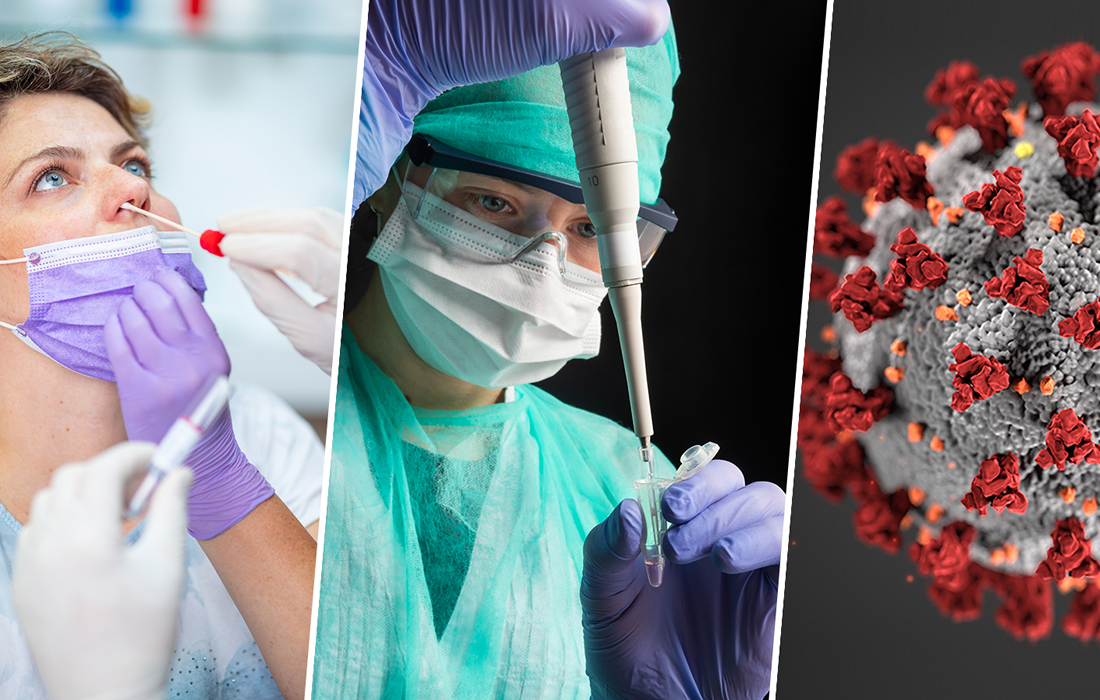COVID-19
IL-26, a New Possible Biomarker for Acute COVID-19
Messenger RNA vaccines encoding for the SARS-CoV-2 spike protein have proven effective at reducing the number of severe cases of COVID-19. However, the emergence of new variants of concern, limited vaccine distribution, and waning immunity remain major problems that highlight the need for more effective therapies against the acute manifestations of COVID-19. Such therapies, in turn, require a deeper understanding of the cellular and molecular mechanisms underlying this disease. Moreover, it is now known that patients with acute COVID-19 present increased blood levels of pro-inflammatory cytokines (e.g., IL-6, IL-8, TNFα) that drive neutrophil mobilization and are associated with poor prognosis in severe cases. Although neutrophils may contribute to viral clearance via cytokine release, phagocytosis, and production of extracellular traps (NETs), a growing body of evidence indicates that excessive neutrophil mobilization becomes pathogenic in COVID-19. Along these lines, we and others recently demonstrated that blood neutrophils from patients with COVID-19 are hyperactivated and display enhanced survival and migration. In addition, this excessive neutrophil mobilization has been confirmed by the increased markers of NET production found in blood from patients with acute COVID-19.
Until now, IL-26 has emerged as an intriguing mediator of host defense in lung disorders due to its antibacterial and neutrophil-mobilizing properties. However, it may also possess anti-viral potential; IL-26 was recently shown to bind viral RNA intermediates and inhibit the replication of the Hepatitis C virus, a virus that, just like SARS-CoV-2, contains a positive-sense single-stranded RNA genome.
Researchers may have found a new biomarker for acute COVID-19
Researchers at Karolinska Institutet in Sweden have shown that patients with acute COVID-19 infection have increased levels of the cytokine IL-26 in their blood. Moreover, high IL-26 levels correlate with an exaggerated inflammatory response that signifies severe cases of the disease.
The researchers have tried, for the first time, to ascertain whether immune signalling via the cytokine interleukin-26 (IL-26) is involved in severe COVID-19. To study how the molecule is involved in COVID-19, the scientists recruited 49 patients who had been hospitalized with SARS-CoV-2-infection, 44 of whom had severe symptoms and needed oxygen therapy. The patients were recruited at a hospital in Stockholm from June 2020 to January 2021. A control group of 27 healthy individuals was also recruited during the same period. The researchers then measured levels of IL-26 protein and other inflammatory compounds in the blood.
The researchers could also see that the increase was associated with the so-called cytokine storm — an excessive and dangerous inflammatory response that signifies severe cases of COVID-19.
The results are promising but are preliminary and warrant further study with a larger patient cohort.
Such a study is on the way and can give more information on the clinical value of measuring IL-26 in COVID-patients, such as whether the levels reflect the severity of the disease.
SOURCE:
Eduardo I. Cardenas, Sandra Ekstedt, Krzysztof Piersiala, Marianne Petro, Agneta Karlsson, Åsa Kågedal, Susanna Kumlien Georén, Lars-Olaf Cardell, Anders Lindén (November 17, 2022). Increased IL-26 associates with markers of hyperinflammation and tissue damage in patients with acute COVID-19. Frontiers in Immunology. Retrieved from : https://www.frontiersin.org/articles/10.3389/fimmu.2022.1016991/full
IMAGE:
https://www.fda.gov/files/COVID%20testing%20policy_1600x900_0.png

